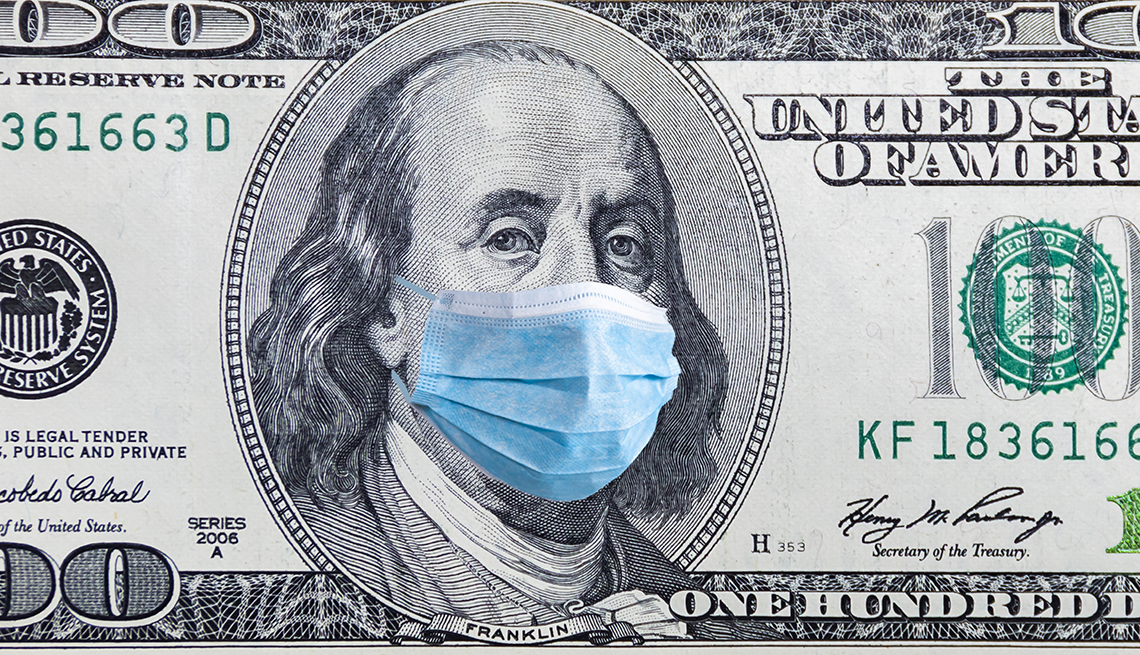Coronavirus scams spreading as fraudsters follow the headlines
by John Waggoner and Andy Markowitz, AARP, Updated July 6, 2020

Coronavirus scams are spreading nearly as fast as the virus itself. As of July 5, the Federal Trade Commission (FTC) had logged about 120,700 consumer complaints related to COVID-19 and stimulus payments, 68 percent of them involving fraud or identity theft. Victims have reported losing $77.4 million, with a median loss of $272.
Fraudsters are using the full suite of scam tools — phishing emails and texts, robocalls, impostor schemes and more — and closely following the headlines, adapting their messages and tactics as new medical and economic concerns arise. For example, the FBI recently warned that fraudsters are advertising fake COVID-19 antibody tests in hopes of harvesting personal information they can use in identity theft or health insurance scams.
Here are some other types of coronavirus scams scams to look out for.
In-demand products and bogus cures
No vaccines or drugs have been approved specifically to treat or prevent COVID-19, the disease caused by the novel coronavirus. That hasn't stopped fraudsters from flooding consumers with pitches for phony remedies.
The FTC and the U.S. Food and Drug Administration (FDA) have sent more than 40 warnings to companies selling unapproved products they claim can cure or prevent COVID-19 and shut down a website that was promoting a nonexistent vaccine,.
Teas, essential oils, cannabinol, colloidol silver and intravenous vitamin-C therapies are among supposed antiviral treatments hawked in clinics and on websites, social media and television shows as defenses against the pandemic.
Other scammers claim to be selling or offering in-demand supplies such as surgical masks, test kits and household cleaners, often in robocalls, texts or social media ads. The FTC has issued warnings to companies suspected of abetting coronavirus robocalls, and the Federal Communications Commission (FCC) set up a dedicated website with information on COVID-19 phone scams.
Financial phonies
More on Coronavirus:
With most Americans getting stimulus checks under the federal CARES Act and tens of millions of people newly unemployed, federal agencies are warning of a wave of schemes to steal government payments. A May survey of jobless Americans by Credit Karma found that more than 1 in 5 had been contacted by scammers about stimulus payments or unemployement benefits.
Watch out for calls or emails, purportedly from government agencies, that use the term "stimulus" (the official term is "economic-impact payment") and ask you to sign over a check or provide personal information like your Social Security number. With economic anxiety rising, crooks are also impersonating banks and lenders, offering bogus help with bills, credit card debt or student loan forgiveness.
Small businesses are being targeted, too. Scammers seek to siphon Paycheck Protection Program dollars earmarked to help smaller firms survive the pandemic, or reach out to owners with promises of quick capital or help with Google search results.
The outbreak has also spawned stock scams. The U.S. Securities and Exchange Commission is warning investors about fraudsters touting investments in companies with products that supposedly can prevent, detect or cure COVID-19. Buy those stocks now, they say, and they will soar in price.
It's a classic penny-stock fraud called “pump and dump.” The con artists have already bought the stocks, typically for a dollar or less. As the hype grows and the stock price increases, they dump the stock, saddling other investors with big losses.
Phishing scams
The Justice Department has shut down hundreds of bogus websites, many with terms like “coronavirus” or “covid19” in the domain name, that promise vaccines and other aid, often purporting to represent government agencies or humanitarian organizations.
The trap is triggered when you contact those malicious domains: You could start getting phishing emails from fraudsters in an attempt either to plant malware on your computer or to get your personal information. Google reported in April that its Gmail platform was blocking 18 million such messages a day.
The FTC is also warning consumers about phishing texts, supposedly from contact tracers warning you that you've been exposed to someone with COVID-19. The message includes a link that, if clicked, downloads malware to your device. (Messages from actual contact tracers working for public health agencies will not include a link, or ask you for money or personal data.)
These communications often appear to be from real businesses or government agencies, and clicking on links or downloading attached files could import a program that uses your internet connection to spread more malware, or digs into your personal files looking for passwords and other information for purposes of identity theft.
Be careful when you browse for information about coronavirus. Developing and testing vaccines for viruses takes a long time, and you'll hear about them first from a legitimate source, such as the U.S. Centers for Disease Control and Prevention (CDC) or the World Health Organization (WHO).
And make sure you are going to the genuine CDC and WHO websites: Scammers are impersonating them, too.
Editor's note: This article was published on March 9, 2020. It is being updated regularly with information on new coronavirus scams, law-enforcement actions and fraud statistics from the FTC.

